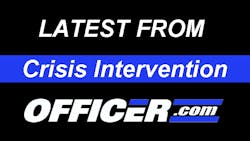If your agency is like mine then your Communication Officers do “status checks.” Maybe it’s called something else where you work, but a status check is when a Communication Officer calls an officer’s radio number and checks on them to make sure they’re okay when they’re on an active call. The officer acknowledges the status check, often responding with "10-4," letting them know they are alright.
If, for some reason, they don’t respond then a protocol kicks in. Communications will repeatedly call the officer’s radio number over the radio and if there’s still no response, a back-up officer is sent to physically check on the non-responsive officer. After that, the Communications Officer will do everything they reasonably can to check on the officer - call their work and personal cell phone, check other radio channels in case the officer was off-channel, use an emergency tone to try to gain the officer’s attention or even call the location where the officer is at.
My agency uses status checks on all calls - not just the ones which are considered to be priority or involving a threat to officer safety. And we all know why: Anything can happen to anyone at anytime, anywhere. This is especially true for us as police officers. So, it’s necessary that our Communications Officers check on us while we’re on a call to ensure we’re okay.
But let me ask you this: Do you do status checks on your co-workers?
At work you’ll do anything to keep them safe - even putting your own life on the line. But, do you offer the same level of commitment when it comes to a co-worker's off-duty and personal life or do different rules apply all the sudden because you're not on the clock?
For some reason it’s seemingly taboo in law enforcement to say something to a co-worker who may be making unhealthy life choices or who is otherwise struggling. You can probably name at least one officer who is in a downward spiral. That spiral may manifest in alcoholism, depression, anger, hopelessness, reckless behavior or even end in suicide. According to BlueHelp.org 169 Police Officers committed suicide in 2018. Unfortunately, the number of verified Police Officer suicides in 2019 has already surpassed that of 2018 and the year isn't over yet. Checking on your co-worker’s status may save their career, family or even their life. Don’t underestimate the opportunity you have to do or say something (without judgement), or even to just be present with them when they need someone.
And how about yourself? Do you often evaluate your own status both on and off-duty?
Fast food. Lack of sleep and exercise. Stress. Constant awareness. Critical incident after critical incident. The toll law enforcement takes on us can be detrimental, especially if we’re not proactive in self-care. If you don’t take care of yourself, no one is going to do it for you. We all need a healthy way to vent. Sometimes that can be through a hobby, involvement in a social or faith-based organization, athletic activity or by traveling. Whatever it is, partake in it often. It’s essential.
I wish I had known this early in my own career. I was so focused on being the “top cop” that I neglected my own self-care. I consumed everything related to policing and all I trusted were other officers. I distanced myself from family and friends. I preferred being at home all the time because I couldn’t “tactically turn off” while in a public place. I felt alone and detached even though professionally I was at the top of my game.
When I took a step back and evaluated my life, I knew I was unhappy and couldn’t stay there any longer. I made an intentional change to get involved with the very things that would make me a healthier person. And while this is a journey and not a race for me, I am happier now personally and professionally than I ever have been. I credit both my wife and friends who came to me and my own self-evaluation for happiness.
Take care of yourself and your co-workers. Think healthy. Act healthy. Be healthy.
Writer’s note: If you find yourself trapped in unhealthy life choices or you’re having trouble processing something that’s happened then please talk to someone about it. Organizations like COPLINE.org and BLUEHELP.org both offer peer support resources specifically for law enforcement to take that courageous first step toward mental and emotional health.
Resources:
About the Author:
Ben Lippens has fourteen years of law enforcement experience and currently serves as a Personnel Officer/Background Investigator at an agency in the Dallas/Fort Worth, Texas area. He holds a TCOLE Instructor and Master Peace Officer certificate, as well as a Bachelor of Arts in Sociology from East Texas Baptist University. He has worked as a Patrol Officer, FTO/PTO and Crisis Negotiator.



